Jaw (orthognathic) surgery
Correct bite problems and improve your quality of life. Our experienced team guides you through every step toward improved health and a balanced, beautiful smile.
How orthognathic surgery works
Orthognathic surgery repositions the upper jaw, lower jaw, or both to correct bite problems and improve facial balance through precise bone cuts and fixation. Surgical options range from single-jaw procedures to comprehensive double-jaw surgery depending on your specific needs.
Who needs orthognathic surgery?
When orthodontics alone isn’t enough, orthognathic surgery is needed when jaws don’t meet correctly or are positioned improperly. While orthodontics can straighten teeth, surgery repositions misaligned jaws for proper function and appearance.
Jaw growth occurs gradually, and sometimes upper and lower jaws grow at different rates, creating functional and aesthetic problems. Birth defects, injuries, or hereditary factors can also affect jaw alignment.
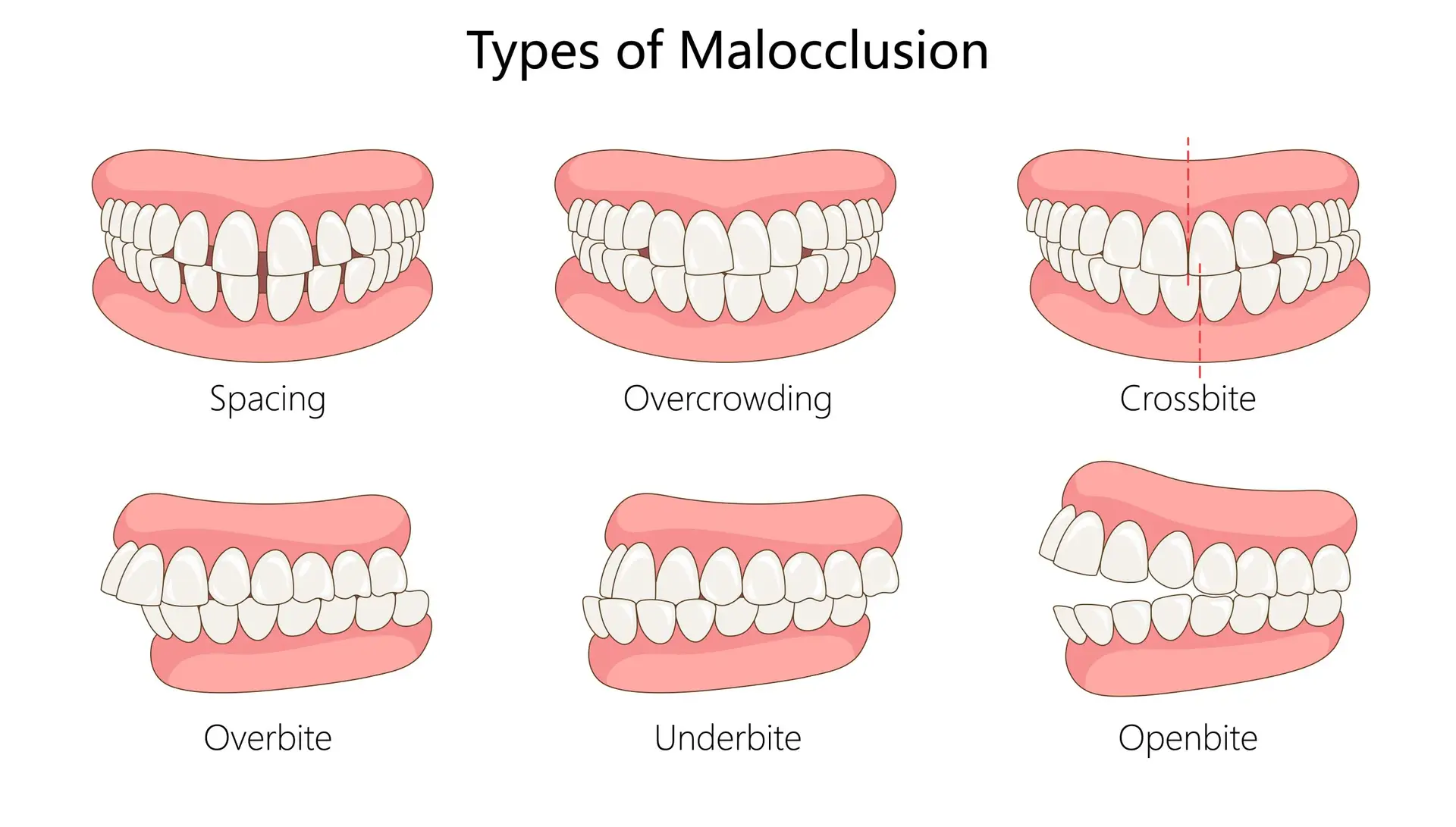
You may benefit from orthognathic surgery if you experience:
- Difficulty chewing, biting, or swallowing
- Speech problems or breathing issues
- Chronic jaw or TMJ pain
- Open bite or protruding jaw
- Facial imbalance affecting confidence
Comprehensive consultation
We want to help you make fully informed decisions. During your consultation, we perform complete examination with X-rays and discuss all aspects of your treatment in detail.
Our goal is to help you understand the benefits of orthognathic surgery and how it can improve your function, health, and appearance. We encourage questions throughout the consultation process.
What to expect during treatment
We take a comprehensive team approach. Orthognathic surgery requires close coordination between your oral surgeon, orthodontist, and dentist to achieve optimal results.
Step 1
Pre-surgical orthodontics
Teeth are positioned to prepare for surgical jaw movement, typically 12-18 months.
Step 2
Surgery
Performed in hospital under general anesthesia using advanced techniques that minimize recovery time and maximize precision.
Step 3
Post-surgical orthodontics
Fine-tuning of bite and tooth positions, usually 6-12 months.
Advanced 3D surgical planning
Precision to a fraction of a millimeter. Using comprehensive facial X-rays and extensive measurements, we create a detailed surgical plan presented to you before treatment begins.
3D virtual planning
Surgery planned in advance using digital models
Custom surgical guides
3D printed guides ensure precision
Patient-specific implants
Plates and screws designed for your anatomy
Predictable outcomes
See your results before surgery
Recovery & aftercare
Recovery from orthognathic surgery involves swelling, bruising, and a restricted diet, with most patients resuming normal activities within a few weeks. Full jaw healing can take up to 6 months, often requiring follow-up orthodontic care.
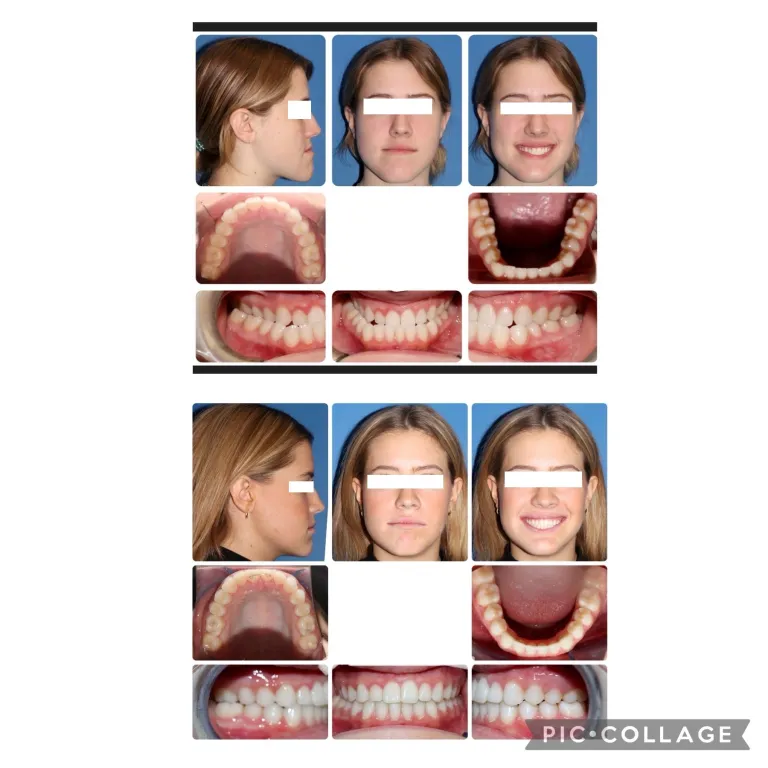
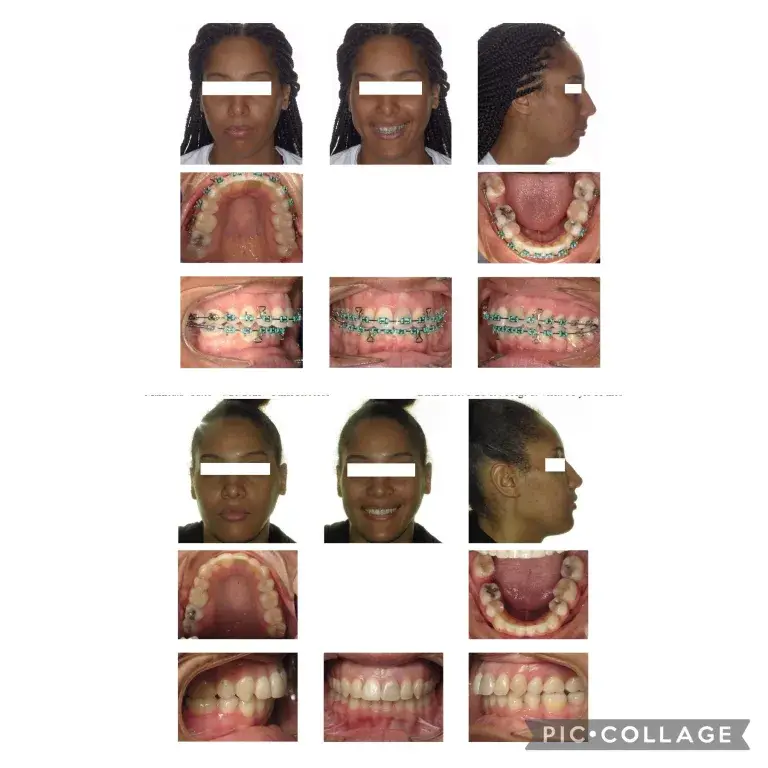
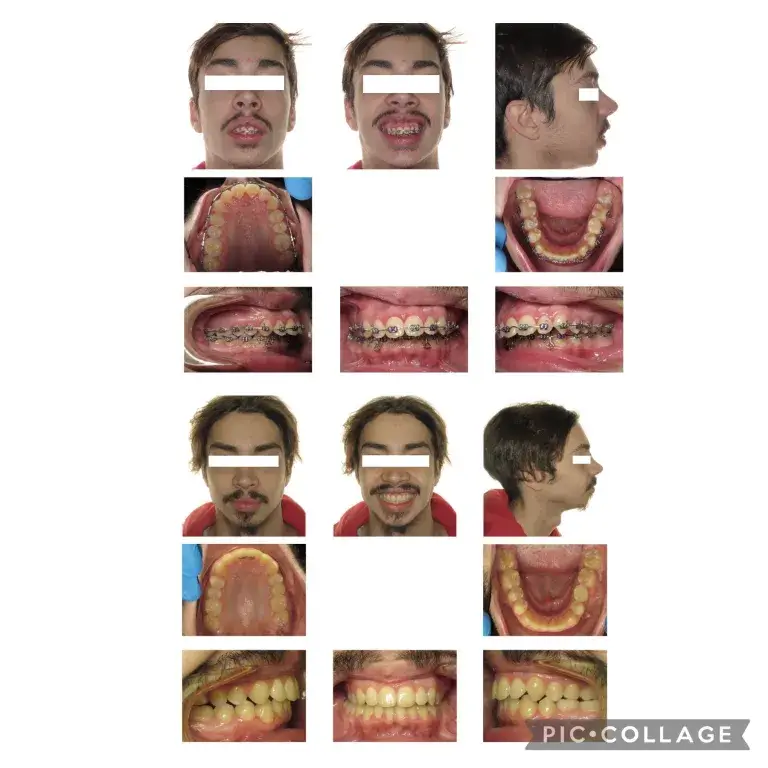

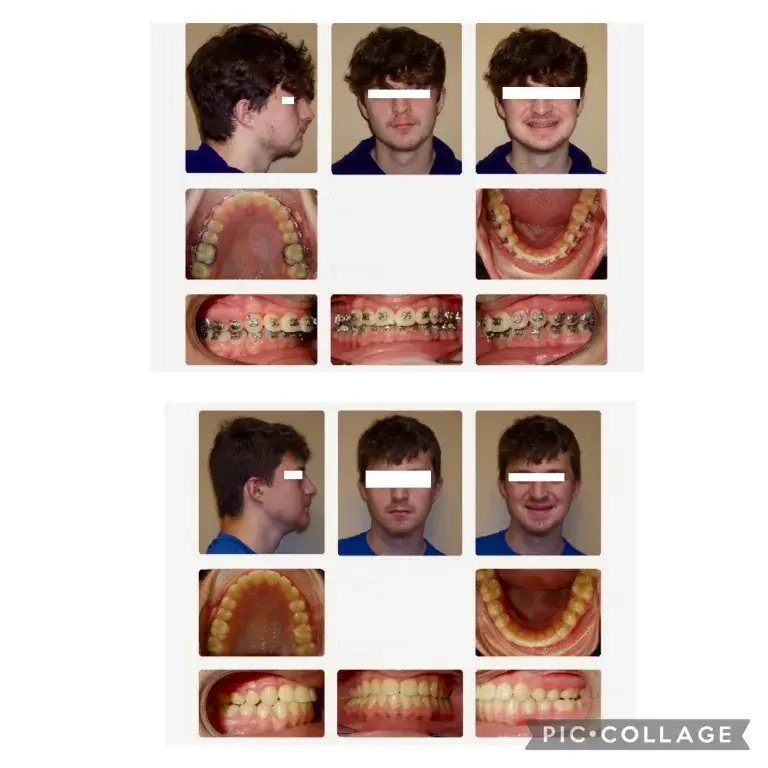
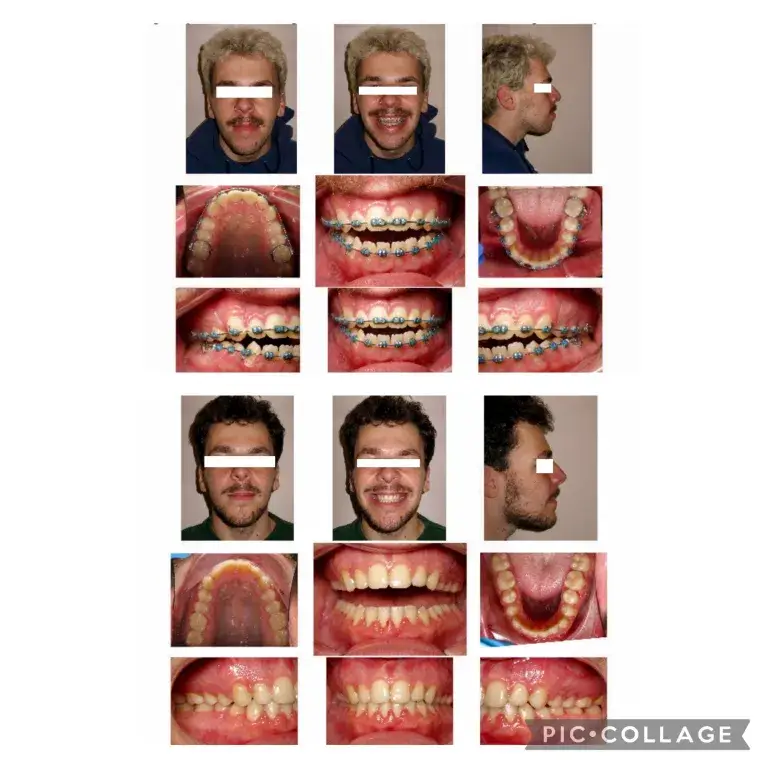
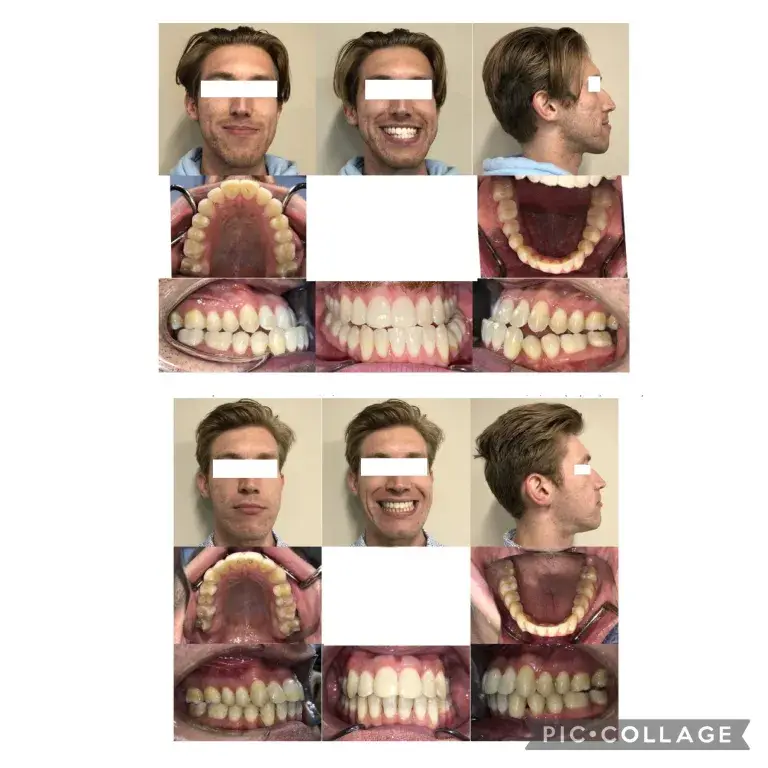
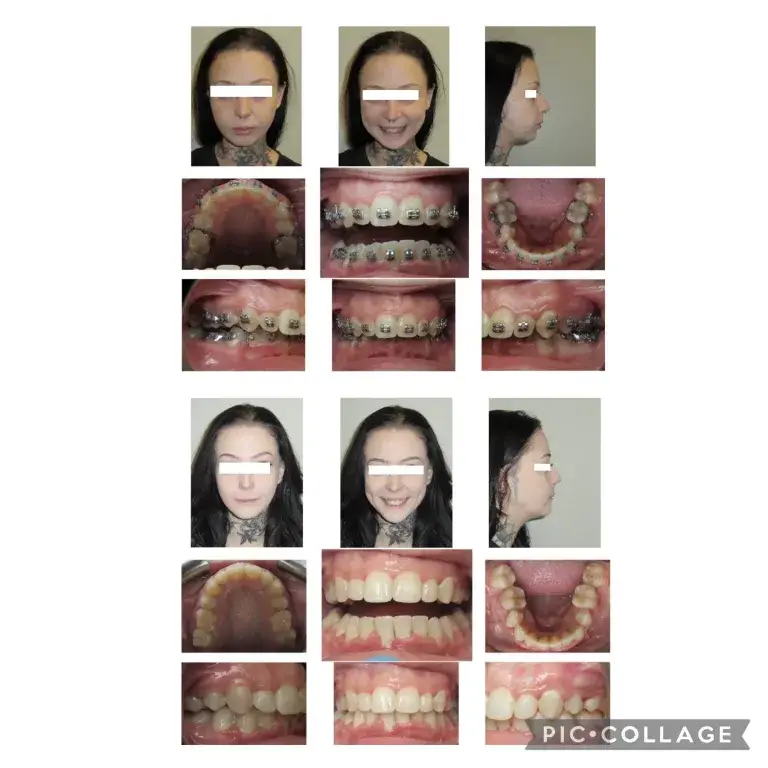
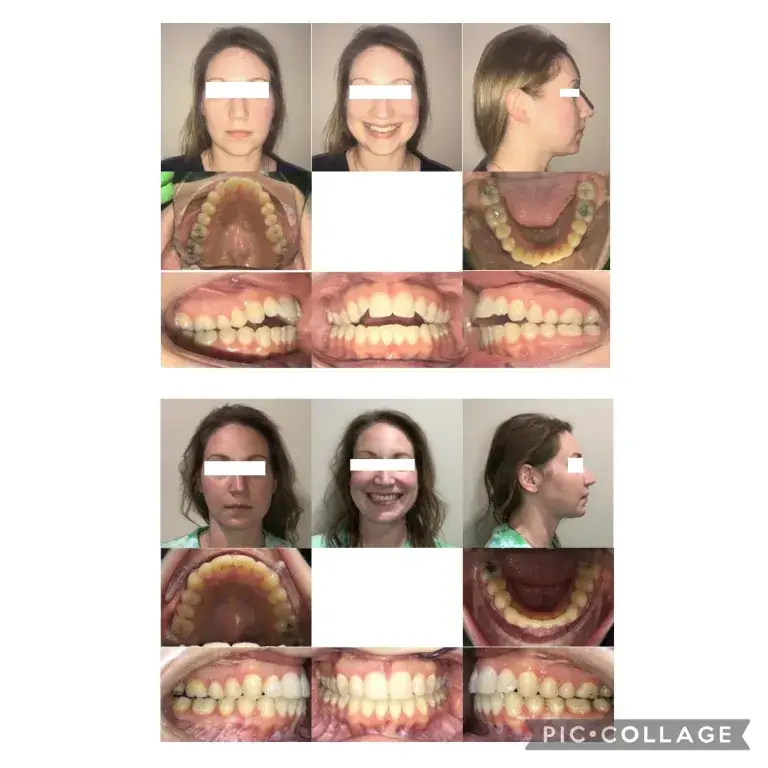
Before and After
More than appearence, life changing results
Orthognathic surgery positions teeth and jaws for improved function, speech, breathing, and facial harmony. This creates a healthier dental-facial relationship, significantly enhancing your quality of life and confidence.